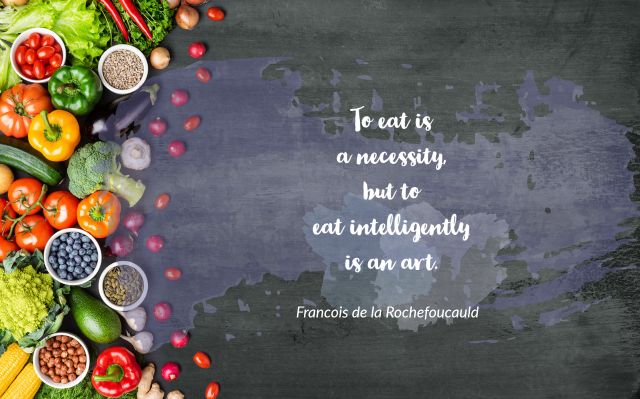
Food and Mood
Supriti Mishra
- 0
- 1051
Disclaimer – Even though Dr. Supriti Mishra, who has a Ph.D. in Food and Nutrition, has thoroughly researched the topic, this article is not medical advice in any regard. Please follow your primary care physician’s advice before making any drastic changes to your diet.
The title begs the question- “What is the relationship between food and mood?”
It is a well-known fact that unhealthy eating patterns can cause mood swings. These patterns cause an unsteady flow of nutrition needed for our body and mind to function properly.
Turns out that the saying “we are what we eat,” has much truth to it, especially in relation to food and mood.
Scientific studies prove that nutrients like zinc, folate, iron, selenium, vitamin D, and magnesium provide protection against mood swings and irritability.
How does Food affects Mood
- Did you know that 90% of serotonin receptors are found in our stomach? Serotonin is the chemical that regulates happiness, anxiety, and mood. Foods that boost serotonin are salmon, nuts, seeds, poultry, eggs, tofu, soy products, milk, cheese and more. Some drinks like green tea and probiotics indirectly boost serotonin levels. Similarly, Vitamin D activates tryptophan, which leads to improvements in serotonin and dopamine levels.
- High consumption of carbs – while carbohydrates are essential for a wholesome nutritional plan, consumption of refined carbs like white bread, pasta, rice, and sugared drinks, could cause the body to respond by reducing blood sugar. This directly affects mood, causes fatigue, and depression.
- Eating windows – you are not consuming enough or helpful nutrition during your eating windows. Or you are overeating during these time brackets. You are snacking on junk food in between your eating windows. Overeating causes lethargy. Eating junk food creates a nutrition gap as you fill yourself with empty calories leaving no space for nutritious food.
- Memory loss – once again sugar, refined carbs, unhealthy fats and processed food are the culprit in early onset of Alzheimer and dementia. There are ongoing researches that are trying to find the relationship between enhancing healthy gut microbes to fight these degenerative diseases. Read this article from the US Department of Health and Human Services – https://tinyurl.com/2kxhdhw3
Mood Boosters
So, the question is what foods are good for our brain health and improve our moods? Making a healthy meal plan and sticking to it can be challenging in the busy lives that we lead these days. However, if you make your grocery list by including items from the following list, it would take a load off to a large extent-
Don’t eliminate carbs, eat the right ones – eating smart carbs that come from legumes, whole grains, fruits, and vegetables that are rich in beta-carotene: apricots, broccoli, cantaloupe, carrots, collards, peaches, pumpkin, spinach, and sweet potato. Eating sprouted beans is also a great way to consume the needful carbs that are rich in anti-oxidants.
Dark greens – collard greens, spinach, and kale are rich in potassium, magnesium, folate, and B-12
Omega-3 Fatty Acids – vegetarian sources of this important nutrient are walnuts and flaxseeds, while others could benefit from fish like tuna and salmon. There are other products, like eggs, yogurt, milk, etc., fortified in Omega-3 fatty acids that are also helpful. Omega-3 fatty acids travel with great speed through the brain’s cell membrane and interact with mood-regulating hormones.
Vitamin D – as mentioned at the beginning of this article Vitamin D is an essential nutrient that improves serotonin or happy hormone levels. Eat foods that supply a good source of vitamin D include fish like salmon, sardines, or herring. Eating red meat in moderation also helps in your vitamin D intake. Fortified cereals, milk products, and egg yolks are also great sources of vitamin D.
Healthy fats – healthy fats are needed for a healthy body and mind because some essential nutrients, minerals (calcium, copper, iron, potassium, selenium, zinc), and vitamins (A, D, E, and K) can only be dissolved in fats. Good sources of unsaturated fats can come from avocados, cheese, ghee, olive oil, dark chocolates, whole eggs, nuts, fatty fish, chia seeds, and full-fat milk products. Include at least one of these in your daily diet to keep your brain happy and healthy.
Don’t forget to hydrate – water is the transporter of most of your nutrients to various parts of your body. It helps your brain cells communicate with each other, helps in flushing the toxin, and wastes that could impair brain function. A healthy man should drink around 13 cups (1 cup = 8 ounces) of water every day, whereas a healthy woman should consume 9 cups. Add some water-rich foods like cantaloupe, melons, oranges, cucumber, watermelon, lettuce to your diet to stay hydrated.
Final Verdict
Some tips for developing and maintaining healthy food/eating habits are
- Load your plate with rainbow of colors that have colorful fruits and vegetables
- Avoid processed foods. Eat them, as they are in nature eating a whole apple is better than eating apple chips or apple jelly.
- Improve your dopamine levels with fish, eggs, legumes, and poultry
- Keep your focus on Omega-3 fatty acids
- Keep a small stash of nuts for mid-morning or mid-afternoon snack
- Limit or eliminate sugar from your diet
- Eat three big meals (unless you are on a diet plan) and two small snacking windows during your day
- Avoid mid-night snacking
- Get your hormone levels and nutrient levels checked at least twice a year
References
- https://health.clevelandclinic.org/bad-mood-look-to-your-food/#:~:text=Food%20and%20your%20mood&text=Protein%20consumption%20(from%20foods%20like,your%20mood%2C%20motivation%20and%20concentration
- https://www.health.harvard.edu/mind-and-mood/food-and-mood-is-there-a-connection
- https://kentuckycounselingcenter.com/how-does-food-affect-your-mood-and-mental-health/
- https://foodandnutrition.org/blogs/stone-soup/relationship-food-mood/#:~:text=Important%20nutrients%20affect%20brain%20chemistry,generally%20in%20a%20better%20mood


